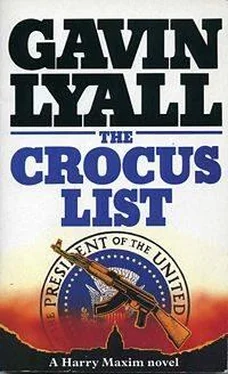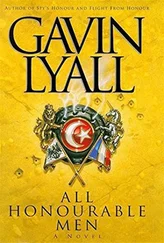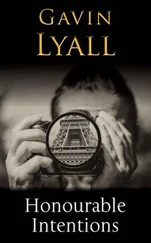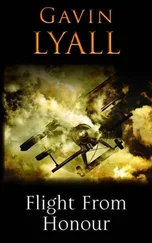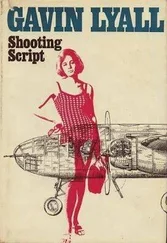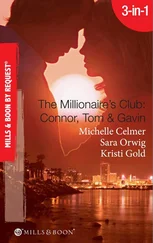George sighed. "1 may just be able to tell you after his funeral."
"Neither death, nor life, nor angels, nor principalities, nor powers, nor things present, nor things to come, nor height, nor depth, nor any other creature, shall be able to separate us from the love of God…"
"Romans 8," Sprague whispered. "I believe Barling was quite a devout man. By Parliamentary standards."
"Quite," George said, as the coffin wobbled past his ear. "And we haven't had anything tactless about the Lord gave, and the Lord hath taken away, since your Committee hasn't apportioned the blame yet. Book of Job, I believe."
"One, possibly verse twenty-one," Sprague topped him easily.
The coffin reached the catafalque as the minister finished his intonation: "Let not your heart be troubled: ye believe in God, believe also in me. In my Father's house are many mansions."
"And doctrinally at least," Sprague murmured as they sat down, "the Church of England has a seat by the fire in every one."
The crematorium chapel was a large, modern redbrick structure with pews varnished to a garish yellow. It was crowded, despite its size, for Mrs Barling had made no effort to keep it private, and there were TV crews on the driveway outside. A lady, George thought sombrely, with a fine appreciation of the politicalrimescale: comethe inevitable memorial service in three weeks' time, people would already be asking 'Barling? Who was he? Oh yes, him.'
"I held my tongue, and spake nothing: I kept silence, yea, even from good words; but it was pain and grief to me," the minister droned, his voice thin in the unfamiliar acoustics. "My heart was hot within me, and while I was thus musing the fire kindled: and at the last I spake with my tongue…"
"I do believe that the widow Barling," Sprague whispered, "is trying to tell us something. She must have chosen this psalm. Why not the dear old 23rd?-at least a decent bit of poetry. But of course he never did speak with his tongue, nor ever would have done if he wanted to hang on to his job. They almost never do… is this the moment, George, to tell you something of uttermost Top Secrecy?"
"… and verily every man living is altogether vanity," the minister went on.
"Something the Committee has not yetquite decided," Sprague murmured, thumbing through his hymn book, "but I believe will come to accept shortly. If our dear departed werenot going to speak out against the Berlin talks, as seemed altogether likely, suppose-I must say suppose-that some deranged mind decided to eliminatehim, under the guise of a Muscovite attempt on the dear President? Consider that for a moment, George." He raised a satisfied, bright-eyed smile towards the pulpit.
"Good Lord," George said, bowing his head.
Sprague's smile got even brighter. "If one thinks about it, the President makes an ideal stalking horse. Nobody else could possibly be the target. But, viewed in tranquillity, that is pure theory, so another theory is equally tenable. Think on it, George."
"Why Barling, though?"
"It frees his followers in the House. He would have voted with the government, they would have voted with him. Now we have twenty-five Members, it could be more, floating free and liable to vote their consciences. A frightening thought, for a coalition government. However, there are no signs of a foreign policy debate being forced at the moment, and one rather doubts there will be unless something dramatic happens, so one might say the assassin failed…"
"You still believe it was just one man?"
"What other evidence? That mythical policeman whom your Major saw for just one second, as he admitted? Amen," he added, in perfect time with the congregation. "No, the lone psychopath, all quite within the compass of one warped brain."
"And now a right-wing brain, which must sit nicely with our Masters."
"You know me better than that, George," Sprague reproved from the corner of his mouth. "And what conspirators were you favouring? Charlie's Indians? I won't denythat might find favour with our Masters." Sprague rose, bright-eyed and smiling pleasantly, to sing the hymn.
"Of course," he said, sitting down again, "it would have been so much easier if we had the assassin alive and on trial. But your Major, alas…"
"… while we look not at the things which are seen, but at the things which are not seen: for the things which are seen are temporal; but the things which are not seen are eternal…"
"So like our dear friends from the secret services," Sprague observed. "Concerning which, one hears a whisper that the Secret Service, the White House Protective Detail, is holding a little affair called an After Action Study. Presumably to find out what went wrong in the Abbey."
"Standard procedure," George suggested.
"Doubtless. And far better than any Congressional inquiry or suchlike; I gather it's a totally private proceeding. But since it didn't happen on their home ground, they will be requesting witnesses from where it did happen. You do follow me?" Said reprovingly, because George looked as if he might have been following the lesson.
"Yes… they'll want some of our people. You aren't thinking of refusing?"
"Of course not. Once the request becomes official, we shall send somebody from the veryhighest level of my Office, nothing less."
"But not anybody who actually knows what happened."
"But who does really know? Surely this is where the Committee comes into its own. When we have resolved the matter, we shall be in a position to give them all the reassurance they can ask. And reassurance is what it comesdown to: security remains a national responsibility. They can't ask for more than that we have reviewed and reformed our procedures."
"For we must all appear before the judgment seat of Christ," the minister warned them; "that every one may receive the things done in his body, according to that he hath done, whether it be good or bad."
"Reassurance," George agreed glumly.
"The President was not, after all, harmed. Nor were a dozen other heads of state who are not, I think, going to request witnesses for an After Action Study." Sprague turned the last word into a throat-clearing noise, because the minister had finished just ahead of him.
With a jerk, the coffin began trundling on its conveyor belt towards the curtains and the waiting flame. It was, as always, a moment of terrible sorrow and, because of the creaking conveyor, cringing banality.
"… the soul of our brother departed, and we commit his body to be consumed by fire," the minister gabbled, trying to keep pace with the vanishing coffin; "ashes to ashes, dust to dust…"
In the moment of silence before the organ started and the congregation began to move, somebody sobbed loudly. It was a lonely world-wide, world-deep sound.
"So where," Sprague asked, "might it not all end?"
So far, the autumn had brought gales, soft bright days left over from summer, misty still days, windy showery ones and now a fine drizzle. Even the weather's become a bloody coalition, George grumbled to himself as he watched the politicians edging in front of the TV cameras and the civil servants edging away.
Sprague summed up: "So, we can be united in this as all things? Everything to be handled through the Committee? Bless you, George, for being, as ever, so understanding…" He drifted away towards his Minister's car. Sprague never drove himself, but was never short of a lift.
Walking towards his own car, George passed James Ferrebee, gulping at a cigarette behind a pillar. "Back to the pit-head?" he suggested.
Ferrebee jumped at the offer. "My Master offered myseat to Mrs Barling. Quite right and proper, but I didn't fancy trying to scrounge a lift from a back-bencher." Ferrebee's status was not that of Sprague.
As they drove out, the next funeral cortege was coming up the drive. "Production line business," Ferrebee commented. "But, given a place like that, I thought it went well. Barling himself would have approved."
Читать дальше
